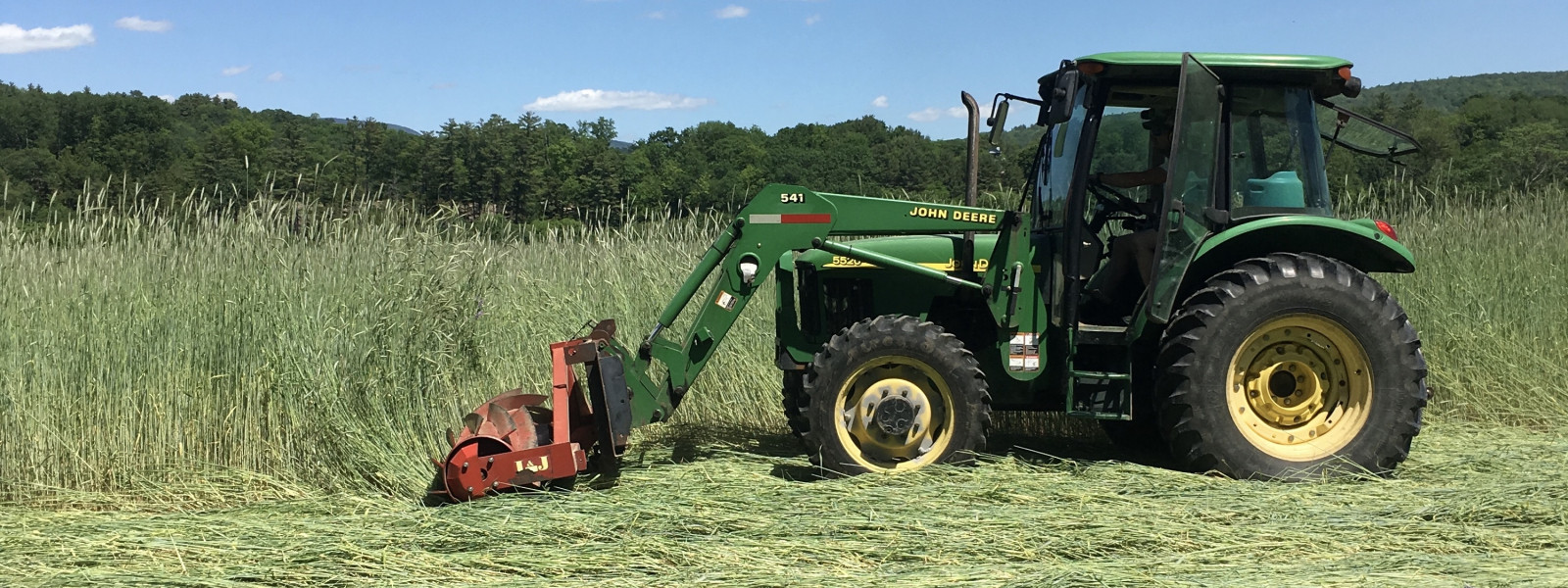Regenerative Agriculture - Hope for the Future
Regenerative Agriculture creates hope for the future through farming as if the earth matters
In June, Will & I were privileged to be a part of an international gathering of activists, scientists, farmers and communicators aimed at building a movement to expand practices and awareness of regenerative farming and its potential to actually reverse climate change. The conference took place at an amazing biodynamic farm and eco-lodge in Costa Rica. Organizers included the Organic Consumers Association, IFOAM (International Federation of Organic Agriculture Movements), Mercola.com (alternative health products), Navdanya (Vandana Shiva’s research and activist organization in Delhi), the Millennium Institute (based in Switzerland), and the Carbon Underground. Experts from 22 countries attended, including researchers from the likes of Texas A&M and the Nelson Mandela Metropolitan University; farmers and activists from Mexico, Russia, Tanzania, Ecuador, India and the US; socially responsible businesses such as Patagonia and Whole Foods; NGOs such as Organic Consumers Association, Institute for Ag. & Trade Policy, Greenpeace Mexico, Center for Food Safety, and more.
One of the conference organizers, Andre Leu, president of IFOAM and co-author of a United Nations report on Soil Health and Climate Change, stated, “We have numerous published, peer-reviewed scientific papers showing that with the right agricultural techniques we can strip enough CO2 out of the atmosphere to reverse climate change. This is a game changer.”
Regenerative, organic farming techniques such as cover cropping, no-till, intensive grazing, and agro-forestry have tremendous potential to actually bring huge levels of CO2 out of the atmosphere and into the ground where it can help grow good food.
An important report released in 2014 by the Rodale Institute helped bring public attention to the benefits of regenerative agriculture. The study is called Regenerative Organic Agriculture and Climate Change: A Down-to-Earth Solution to Global Warming. The summary states, “Simply put, recent data from farming systems and pasture trials around the globe show that we could sequester more than 100% of current annual CO2 emissions with a switch to widely available and inexpensive organic management practices, which we term ‘regenerative organic agriculture.’ These practices work to maximize carbon fixation while minimizing the loss of that carbon once returned to the soil, reversing the greenhouse effect.”
More and more scientists recognize that industrial agriculture is one of the biggest contributors to climate change. Estimates in different studies suggest that conventional farming contributes anywhere from 30 to 70% of all greenhouse gases. This takes into consideration feed, fertilizer and pesticide manufacturing, processing, transportation, refrigeration, and waste disposal. When deforestation for livestock feed production is accounted for, the estimates are in the higher percentage range. But, conversely, farming as if the earth and its future inhabitants mattered could be the thing that brings back hope that we can actually fix the mess we have created through “modern” farming techniques.
While together in Costa Rica, our new organization, Regeneration International, sought to find a way to connect the many supporters who want to spread this hope by working toward a wholesale conversion of agriculture worldwide and implementing regenerative, carbon sequestering methods. In an effort to disseminate the knowledge of these techniques and to help consumers understand their role in supporting this type of farming, we decided to create a map that serves to connect all the people and organizations working on organic, regenerative farming. We plan to organize a huge March Against Monsanto protest and rally in Washington, D.C. the day after World Food Day, October 17. The group will also hold meetings, rallies, and workshops during the alternative climate summit in Paris from December 1-10. Following the Paris Summit, Regeneration International will coordinate regional organizations to create national Regeneration Charters in as many countries as possible.
It was great to be among so many passionate and creative people who are focusing their lives on finding real solutions to the biggest threat to humankind: climate change. We visited one farm that is growing food year-round on the same ground, using compost and fertilizer and mineral mixes made from ingredients sourced mainly from the forest near their farm. Will and I realized, even more profoundly, that we should always be looking for more and better ways to grow our food with a goal of sequestering carbon. Being a part of a larger network of folks who are trying to do the same thing made us hopeful and eager to share our mission and passion. The important thing is to turn that hope into positive action. We all eat - so everyone has a part to play in supporting a farming system that protects our precious resources for our children and grandchildren.







